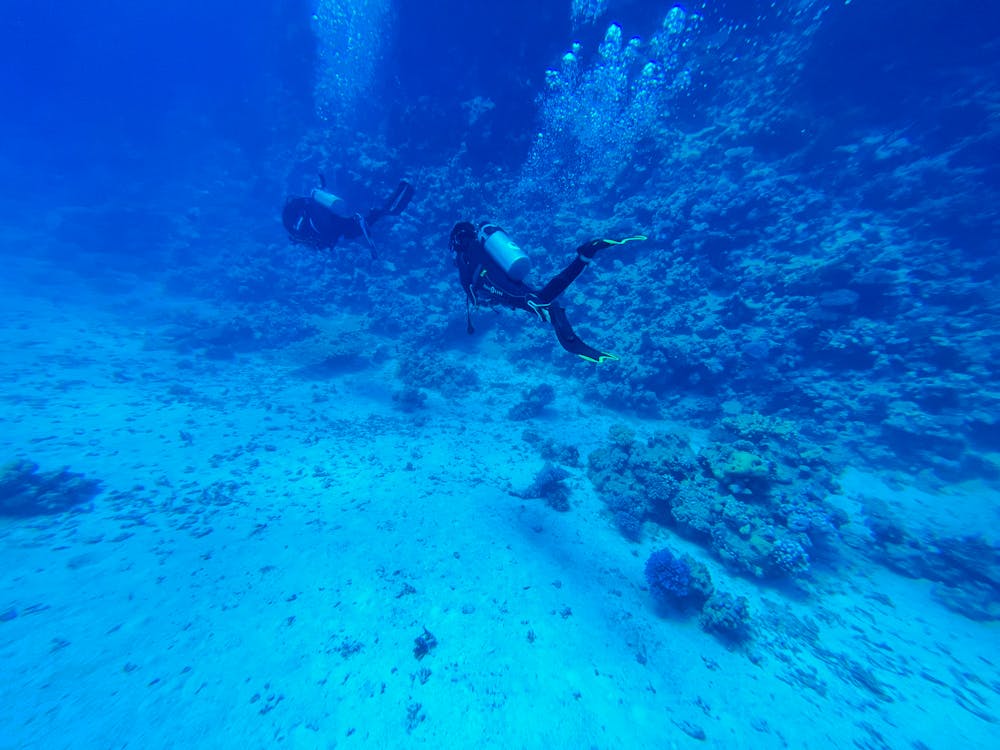 DOI : 10.17577/
DOI : 10.17577/Over 80% of the world’s oceans remain unexplored, representing a vast, mysterious frontier with the potential to reshape our understanding of the planet. From uncovering new marine species to discovering sunken historical treasures and unlocking climate change insights, the depths of the ocean hold boundless possibilities. Despite its importance, ocean exploration has historically been limited by high costs, specialized expertise, and the sheer logistical challenges of venturing into the deep. Today, however, innovative technologies and collaborative efforts are breaking down these barriers, making ocean exploration more accessible to researchers, conservationists, and even citizen scientists.

Revolutionizing Ocean Exploration Through Technology
Advancements in technology are at the heart of this transformation. Autonomous underwater vehicles (AUVs) and remote-operated vehicles (ROVs) have become more affordable, portable, and user-friendly, enabling even smaller research groups and educational institutions to venture into uncharted waters. Compact sensor systems, underwater drones, and real-time data processing software are further democratizing access to the deep.
One remarkable innovation is the Sentinel System, a cutting-edge platform that combines real-time monitoring with advanced data collection capabilities. Designed to withstand the ocean’s harshest conditions, the Sentinel System enables users to gather critical information about marine ecosystems with unprecedented precision and efficiency. This tool not only supports large-scale research projects but also empowers smaller organizations and individuals to make significant contributions to marine science.
Bridging Gaps Through Citizen Science
Citizen science is another game-changer in ocean exploration. Platforms that crowdsource data and invite non-professionals to participate are helping to bridge gaps in marine knowledge. By deploying accessible technologies like the Sentinel System or partnering with initiatives that provide low-cost underwater equipment, amateur explorers and hobbyists can contribute valuable data on biodiversity, pollution, and the effects of climate change. This collective approach is critical in filling gaps where professional exploration may be limited by resources or funding.
Opening Doors to Collaboration
Accessibility is also fostering global collaboration. Institutions, governments, and private organizations are increasingly working together to pool resources, share findings, and develop open-source technologies. Such initiatives not only accelerate research but also reduce redundancies, ensuring that efforts to understand and protect the oceans are coordinated and effective. For instance, multinational projects are now mapping the ocean floor at a pace previously unimaginable, supported by user-friendly tools that allow seamless data sharing.
Why Access to the Ocean Matters
Making ocean exploration more accessible is about more than just discovery—it’s about ensuring the survival of our planet. The ocean regulates the Earth’s climate, produces over half of the oxygen we breathe, and supports millions of species, including humans. Threats like overfishing, plastic pollution, and rising sea levels make it urgent to monitor and understand marine ecosystems. Accessible tools and systems empower communities around the globe to take an active role in conservation, ensuring that vital areas are protected before it’s too late.
Education and Inspiration
As accessibility improves, the educational and inspirational value of ocean exploration is also becoming more evident. Schools and universities now incorporate hands-on underwater research into their curriculums, sparking interest among young scientists and future marine conservationists. The accessibility of live-streamed dives, virtual reality ocean tours, and interactive marine data platforms has inspired millions to engage with the ocean, even if they never leave dry land.
The Future of Inclusive Exploration
The democratization of ocean exploration is just beginning. Innovations like the Sentinel System and other user-friendly technologies will continue to evolve, driving down costs and making data collection even more efficient. Future developments may include swarms of affordable underwater drones, community-driven marine mapping projects, and AI-powered analytics tools capable of processing vast amounts of underwater data.
In the not-so-distant future, exploring the ocean’s depths may become as common as hiking a trail or visiting a national park. The broader accessibility of these opportunities ensures not just a deeper understanding of the ocean’s mysteries but also a stronger commitment to its stewardship.
Empowering Everyone to Play a Role
The oceans are not just a scientific frontier; they are a shared resource that sustains all life on Earth. By removing barriers to exploration, we can empower individuals, communities, and nations to take responsibility for this vital ecosystem. Whether you’re a scientist seeking new discoveries, a student embarking on your first underwater research project, or an ocean enthusiast volunteering with a conservation group, together, we can unlock the mysteries of the deep and preserve its wonders for generations to come.




